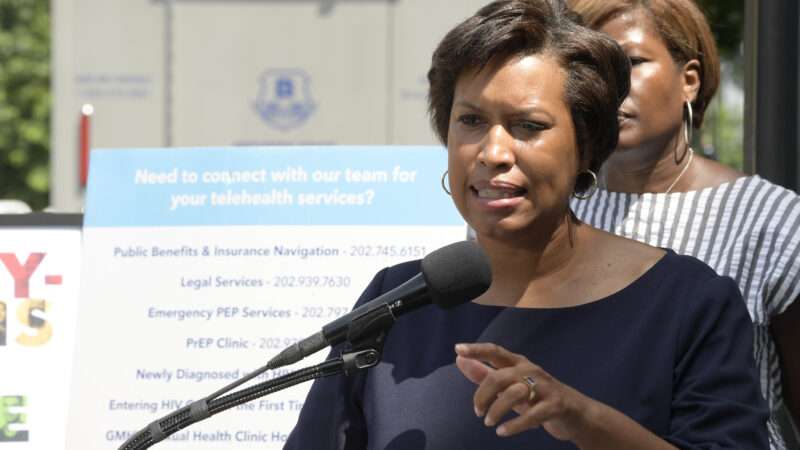
President Joe Biden's decision to forgive $10,000 in student loans has renewed the discussion about how government-subsidized borrowing has inflated the cost of higher education. Meanwhile, D.C. Mayor Muriel Bowser seems to be thinking: What if we did that for housing too?
Last week, the mayor urged residents to take advantage of the city's newly expanded Home Purchase Assistance Program (HPAP). Starting October 1, the program will provide residents with up to $202,000 in interest-free loans to help cover the costs of a first-time home purchase, plus an additional $4,000 to help cover closing costs.
The decades-old program previously provided home purchasers with $80,000 in interest-free loans. The increase is justified, officials argue, by today's hot housing market.
"We knew we had to do something to make the program more viable for potential home buyers," Deputy Mayor John Falcicchio told The Washington Post last week. "We wanted our residents to be the most prepared as they go into this hot housing market."
D.C. is certainly an expensive place to buy a home.
The real estate listing company Zillow says the typical D.C. home is worth $707,747—roughly twice the typical home cost nationally. Prices have increased 9 percent so far this year, according to the Case-Shiller home price index. That's slightly more than the national increase in prices but far less than the 20-plus percent increases in such cities as Atlanta and Tampa.
These interest-free loans will probably increase those prices further. Indeed, the value of that subsidy is more likely to be captured by home sellers than by homebuyers.
The whole purpose of down payment assistance is to get more people to buy homes. That's another way of saying that it is increasing the demand for home purchases. Economics 101 tells you that increasing demand, all else being equal, will increase prices. Homebuyers with more money can be less price-sensitive, and home sellers can be choosier about purchasers. All that encourages those sellers to increase prices.
We've seen a similar phenomenon with student loans. One 2017 study found that for every dollar increase in student loan subsidies, tuition rose by 60 cents. But student loans come with interest rates that limit people's willingness to borrow, and therefore constrain universities' ability to raise prices. D.C.'s homebuyer assistance program provides interest-free loans. When the costs of borrowing are free, you can expect people to make full use of the program.
In a normal market, you'd expect price increases to induce a supply effect. More demand encourages suppliers to enter a market, which helps moderate price increases.
But don't expect to see much of that in D.C.'s housing market. For starters, the city has only so many vacant or redevelopable plots of land where new housing could go. Redeveloping existing housing into more units is constrained by the city's zoning laws and historic preservation rules. Meanwhile, rising inflation and persistent supply-chain issues have caused new home construction to plummet, as high material costs make builders less willing to take on new projects.
All that suggests any supply effect from D.C.'s expanded downpayment assistance will be pretty muted. Home prices will increase, and home sellers will gobble up most of the value of the interest-free loans. Homebuyers who don't qualify for the program will be worse off, as they'll have to contend with these higher prices without the help of any subsidies.
It's telling that the maximum available loan from the HPAP program has crept up over the years—from $50,000 in 2016 to $80,000 as of last year, and now $202,000—to match ever-rising home prices.
Clearly, the program is not fixing the city's underlying affordability problems. In fact, it's making the situation worse.
The post Selling a Home? The D.C. Down Payment Assistance Program Will Give You Up to $202,000. appeared first on Reason.com.







